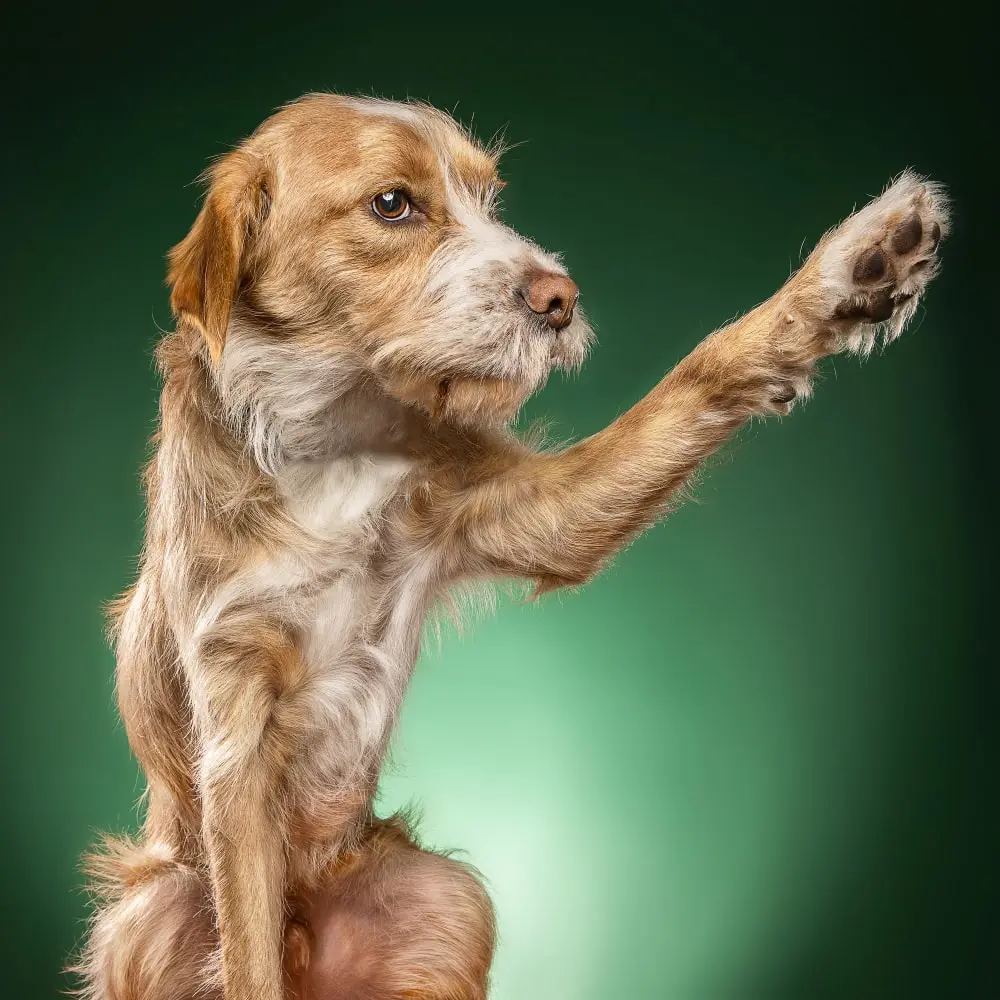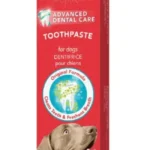Are you worried that your healthy puppy is shrinking? Do dogs lose weight as they age? Yes. Weight loss in senior dogs is normal. Still, it helps to understand what’s going and how to keep your aging pup healthy and happy.
Why Do Dogs Lose Weight as They Age? What Happens When Dogs Age?
Aging is inevitable, even for your four-legged friend. For their bodies, it means slower metabolisms to joint changes. Aging dogs undergo a lot of physical transformations that can influence their weight.
At what age is a dog considered a senior? The life cycle of a dog is quite interesting. Smaller breeds are considered seniors around 10-12 years. On the other hand, larger breeds hit their golden years earlier, at 7-8 years. Middle-sized breeds fall somewhere in-between, usually around 8-10 years of age. These timelines give you a clue you in on when to start keeping a closer eye on their weight.
Is It Normal for an Older Dog to Lose Weight?
One of the most common concerns pet parents share online is, “Is it normal for an older dog to lose weight?” Yes. Some weight loss is expected as dogs age, especially if they’re less active or experiencing slight muscle loss. Significant or sudden weight changes typically signal an underlying issue.
Keep in mind that health problems ranging from dental disease to metabolic disorders like diabetes or kidney disease affect weight. For example, if you are dealing with a senior dog drinking so much water, it could indicate a kidney disease. Observe eating habits, behavior, and physical changes is crucial to catching potential issues early.
Why Is My Dog Getting Skinny as He Gets Older?
There might be a lot of contributing factors. It could be due to:
- Slowed Metabolism and Muscle Mass Loss
Just like humans, aging dogs naturally lose muscle mass. Losing muscle mass gives them a “skinnier” appearance. Muscle atrophy is especially common in the hindquarters, which brings us to the concern of an old dog losing weight back end. - Dental Issues
Is your dog struggling to chew kibble or avoiding meals altogether? Dental pain from gum disease or decayed teeth makes it harder for them to eat. Thus, resulting in them losing weight. Fortunately, there are brushless toothpaste for dogs that are effortless to apply and ensure proper dental hygiene. - Chronic Illnesses
Conditions like kidney disease or diabetes are notorious for causing weight loss. If you are wondering why is my senior dog losing weight but still eating?, chronic illness could be to blame. Weight loss despite a good appetite is a red flag that warrants an immediate vet visit, - Parasites
Internal parasites, even in older dogs, cause malnourishment and weight loss. Regular deworming can prevent this. - Cancer
While scary, cancer becomes more prevalent as dogs age. Cancer saps energy and leads to sudden weight loss, even when other symptoms seem minor.
Specific Health Conditions Linked to Weight Loss in Dogs
Sometimes, unexplained weight loss in older dogs signals more than just aging. Several health conditions play a role.
Diabetes is one common culprit. Dogs with diabetes often lose weight even though their appetite is impressive. Symptoms include increased thirst, frequent urination, and a lethargic demeanor.
Kidney disease also tends to cause weight loss in senior dogs. Damaged kidneys struggle to process waste, leading to nausea, reduced appetite, and, eventually, weight decline. If your dog is drinking or urinating more but seems skinnier, this condition might be behind it.
Then there’s cancer, which unfortunately becomes more common as dogs age. Tumors can alter metabolism, robbing the body of nutrients and causing sudden weight changes. Weight loss is often accompanied by other signs like fatigue, vomiting, and changes in behavior.
Thyroid issues work the other way too. While hypothyroidism typically causes weight gain, hyperthyroidism leads to rapid, unexplained weight loss. High-energy dogs, in particular, are worth keeping an eye on.
For conditions like these, early detection makes all the difference. If you suspect anything is wrong, or have noticed other symptoms besides weight loss, seek emergency medical attention.
Old Dog Losing Weight and Muscle Mass
It revolves around sarcopenia, a natural part of aging. Sarcopenia occurs when muscles shrink due to reduced activity and age-related factors. It’s especially noticeable in the back end or along their spine. Is it normal to see my dog’s spine? With muscle loss, it is not unusual. Nevertheless, it shouldn’t be extreme.
How to Combat Muscle and Weight Loss
It helps to keep your senior dog active, as counterproductive as that sounds. Gentle exercises like short walks and other outdoor activities with your dog help prevent excessive muscle loss. Adding high-protein diets or supplements such as Ceva Senilife supplements with amino acids will help maintain muscle tone. A vet will guide you better on a diet plan and best supplement for your dog.
My Dog Is Losing Weight but Eating Normally
A common frustration we get is a dog that is eating normally and still losing weight. The scenario points toward inefficiencies in how your dog’s body is absorbing nutrients. Potential causes include:
- Malabsorption Disorders
Diseases like inflammatory bowel disease or exocrine pancreatic insufficiency impair their ability to digest and absorb nutrients. - Metabolic Rates and Caloric Needs
Even if they have an appetite, their aging bodies might not process food the same way. Adjusting portion sizes or opting for a calorie-dense senior dog food can help.
Breed-Specific Considerations About Weight Loss
Ever noticed that your Labrador carries weight differently compared to a Whippet? Breed plays a big role in how aging impacts a dog’s physique. Certain breeds are genetically predisposed to lose weight or experience muscle wasting as they age.
Take Greyhounds or Whippets, for example. Their naturally lean build makes it easy to spot even slight weight loss. On the other hand, stockier breeds like Bulldogs or Pugs might hide trouble beneath their sturdy frame, which is why regular weigh-ins are so important.
Large breeds like German Shepherds or Great Danes are likely to suffer unique aging challenges. Due to their size, they often face early-onset arthritis or hip dysplasia, reducing their ability to move and maintain muscle mass. Fortunately, they are treatable and manageable. There are dog beds for hip dysplasia to manage the condition, should your dog suffer from it.
Lastly, small but active breeds like Jack Russell Terriers lose weight faster in their later years if they don’t get enough calories to meet their energy levels. Matching your dog’s breed-specific needs with their diet, activity and veterinary care ensures they age healthily.
How to Help an Older Dog Gain Weight
There might be something you can do to help your older dog gain weight. It involves thoughtful adjustments to their diet and routine. Here’s your action plan:
- Switch to High-Calorie Senior Dog Food
Look for foods fortified with healthy fats and proteins designed for seniors. These are the best foods for senior dogs losing weight as they are both nutritious and palatable. - Offer Frequent, Smaller Meals
Dogs with dental pain or slowed appetites may eat more when offered smaller, manageable portions. Consider using automatic dog feeders like Blitz Automatic dog feeder is you don’t spend your days at home. - Add Tasty Toppers
Bone broth, wet food or boiled chicken can make meals enticing and add extra calories. Tempted to feed them rotisserie chicken? Here is all you need to know about rotisserie chicken for dogs. - Consult Your Vet About Supplements
High-calorie gels or powder supplements can boost your dog’s daily caloric intake. - Rule Out Underlying Health Issues
If your elderly dog is losing weight but acting normal, schedule a thorough vet checkup is crucial. Rapid weight loss isn’t something to gamble with.
Should I Be Worried If My Dog Is Skinny?
Only if the weight loss is fast, unexplained, or accompanied by other symptoms. Stay calm, though; a vet visit can often uncover and treat the issue effectively.
Old Dog Rapid Weight Loss Treatment
Treating rapid weight loss starts with identifying the problem. Handy diagnostics like blood tests, X-rays, or ultrasounds can help pinpoint the issue. Comprehensive treatment may involve medication, dietary changes or dealing with specific conditions like parasites or organ failure.
Is It Normal for Dogs’ Hair to Thin With Age?
Age affects more than weight! Many owners notice dogs’ hair thinning with age. It is natural as older dogs experience hormonal shifts that can lead to dull coats or shedding. Supplementing their diets with Omega-3 fatty acids helps with coat health. However, significant hair loss should always be checked out in case of conditions like hypothyroidism or mange.
Ready to Support Your Aging Pup?
Aging is tough to watch in our beloved pets, especially when changes like weight loss occur. Do dogs lose weight as they age? Yes. Fortunately, it’s manageable when you know what to expect and how to act. Consult your vet and adjust their diet, supplements or routine to keep them healthy and happy even in their senior years.





